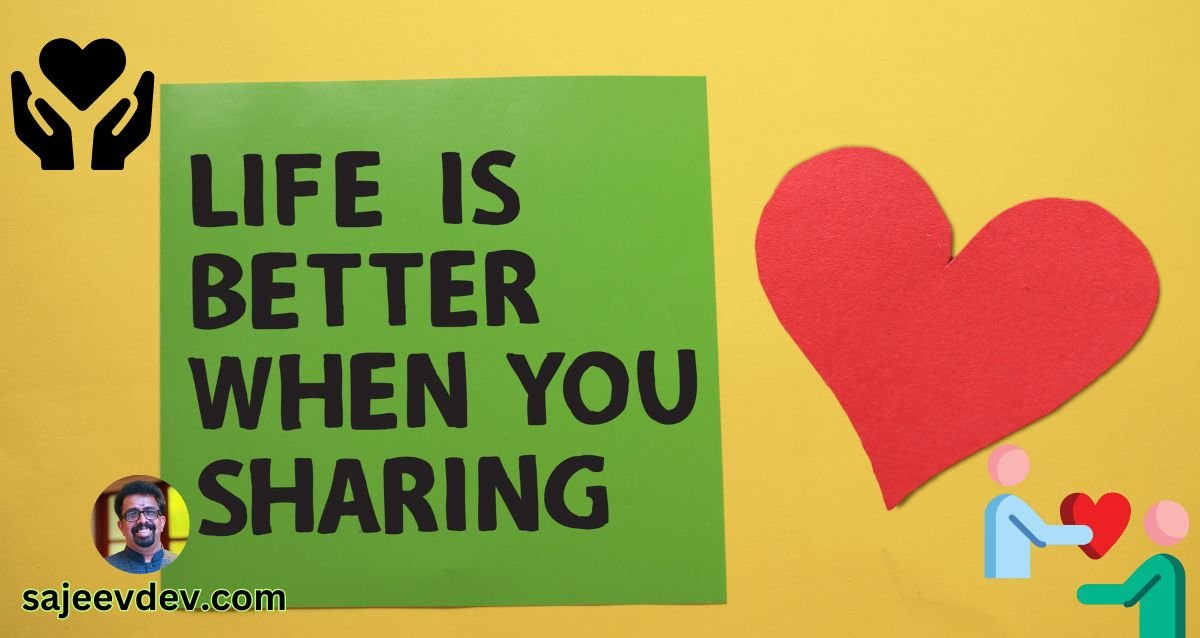Generosity is a fundamental aspect of human interaction, deeply woven into the fabric of various cultures and societies throughout history
Generosity is a fundamental aspect of human interaction, deeply woven into the fabric of various cultures and societies throughout history. It refers to the act of giving freely without expecting anything in return, embodying qualities such as kindness, compassion, and altruism. Generosity transcends mere financial aid; it can manifest through the sharing of time, resources, and skills, which enriches communal bonds and fosters a sense of belonging. In diverse cultural contexts, the principles of generosity often parallel notions of respect, reciprocity, and community spirit, suggesting that it holds universal significance.
The impacts of generosity extend beyond the immediate exchanges between individuals. Psychological studies indicate that engaging in acts of kindness can significantly enhance one’s emotional well-being. When people give, they not only uplift those around them but also experience feelings of joy and satisfaction. This phenomenon is often described as the “helper’s high,” a state of euphoria that arises from helping others. Neuroscientific research further supports this claim, demonstrating that generous actions stimulate areas of the brain associated with pleasure, thus reinforcing the behavior. In this way, generosity becomes a powerful cycle; the giver benefits psychologically while simultaneously contributing positively to the recipient’s state of mind.
In light of these perspectives, it is clear that the act of giving enriches both the giver and the receiver. Through nurturing relationships, fostering community ties, and promoting emotional health, acts of generosity can transform personal lives and broader societal structures. This deep-rooted significance of generosity sets the stage for exploring its various dimensions and rewards. By understanding the power of generosity, individuals can potentially elevate their own lives as well as those of others, cultivating a more compassionate world.
The Various Facets of Generosity
Generosity manifests in numerous ways, each contributing to the enrichment of both the giver and the receiver. One fundamental form of generosity is the giving of time. Time is one of the most valuable resources individuals possess, and offering it to others can create deep connections. Volunteering at local shelters, mentoring youth, or simply being there for a friend in need exemplifies how the generous act of dedicating time can foster community bonds and enhance personal relationships.
Another significant aspect is the giving of resources. This includes financial contributions, tangible goods, or simply sharing one’s skills. Charitable donations to non-profit organizations serve to advance vital causes, while providing resources like food or clothing to those in need directly addresses basic human needs. Additionally, sharing one’s professional expertise can empower others, thus creating an environment where collective advancement is possible.
The act of giving love is equally paramount. This facet of generosity involves showing compassion, affection, and emotional support. Acts such as offering encouragement during difficult times, expressing appreciation to loved ones, or engaging in community-building initiatives reflect a generous spirit. The imposition of love through various forms helps to cultivate a sense of belonging and trust among individuals, reinforcing the social fabric.
Lastly, the giving of attention is a highly undervalued yet powerful area of generosity. In a fast-paced world, taking the time to listen, observe, and acknowledge others can significantly impact their lives. Engaging in heartfelt conversations or simply being present in a moment demonstrates profound respect and concern for others’ well-being. These multifaceted acts of generosity, whether big or small, play a crucial role in fostering connections that elevate the soul and enhance community spirit.
The Ripple Effect of Giving
Acts of generosity can lead to a profound, cascading impact within communities, often referred to as the ripple effect. When an individual engages in selfless giving, whether through time, resources, or support, it can inspire others to act similarly. This phenomenon is exemplified through various studies and real-life instances, showcasing how one act of kindness can ignite a chain reaction, fostering a culture of generosity. For example, research from the University of British Columbia indicates that when individuals witness acts of altruism, they are more likely to engage in similar behaviors themselves, effectively multiplying the initial impact of that generosity.
The ramifications of this ripple effect extend beyond immediate rewards. In many cases, communities that emphasize sharing and support show increased levels of trust and cooperation among their members. A notable illustration is the “pay it forward” movement, where recipients of kindness feel compelled to extend their hand to others, thereby amplifying the benefits of communal generosity. This cycle creates an environment where collaboration becomes the norm, and individuals feel more connected to each other, leading to improved social cohesion.
Statistics reveal that communities with high engagement in altruistic activities often experience significant benefits, such as enhanced well-being, lower crime rates, and a greater sense of belonging among residents. For instance, a study conducted by United Way found that communities with strong volunteer networks reported a 20% increase in local social capital. This demonstrates not only the immediate advantages of giving but also the long-term positive effects on community development and resilience.
In essence, the ripple effect of giving embodies the profound impact that individual acts of generosity can ignite, leading to a more compassionate and connected society. Through collective action inspired by altruism, the potential to create positive change is limitless, highlighting the importance of cultivating a spirit of sharing within our communities.
The Science Behind Generosity
Generosity is often regarded as a noble trait, yet its impact extends far beyond social niceties. Numerous scientific studies have unveiled an intricate relationship between acts of generosity, psychological benefits, and physiological responses, thereby providing a compelling perspective on why sharing elevates the soul. Researchers have established a correlation between generosity and heightened levels of happiness, revealing that individuals who regularly engage in altruistic behavior often report greater life satisfaction. The act of giving activates the brain’s reward center, specifically the mesolimbic pathway, triggering feelings of joy and fulfillment. This neurochemical reaction illustrates that generosity is not merely a selfless act but rather a means of enhancing one’s emotional well-being.
Furthermore, the psychological benefits of generosity extend beyond immediate happiness. Engaging in acts of kindness has been associated with decreased levels of stress and anxiety. When individuals focus on the needs of others, they tend to experience a shift in perspective, which can alleviate personal worries and stressors. This phenomenon is supported by studies that indicate sharing resources, whether emotional or material, can lead to lower cortisol levels—a hormone associated with stress. Consequently, being generous not only benefits the recipient but also fosters a nurturing environment for the giver.
Moreover, engaging in generous behavior has been linked to improved overall well-being. Research shows that individuals who practice kindness regularly tend to exhibit higher levels of resilience, emotional intelligence, and strong social connections. This interconnectedness forms a feedback loop where the more one gives, the more substantial the emotional and social rewards become, further encouraging altruistic behavior. In essence, the science behind generosity reveals how sharing enriches our lives, demonstrating that acts of kindness are not just beneficial for the recipient; they also contribute significantly to the mental and emotional health of the giver, cultivating a cycle of positivity and well-being.
Generosity in Different Cultures
Generosity is a universal value, albeit expressed and interpreted distinctively across cultures. In many societies, this concept often intertwines with religious beliefs and community values, creating a rich tapestry of traditions that celebrate the act of giving. For instance, in the United States, Thanksgiving serves as a prominent celebration where families gather not only to give thanks but also to participate in charitable acts, often donating food and resources to those in need. This festival encapsulates the spirit of generosity, emphasizing sharing with family and the broader community.
In countries like India, festivals such as Diwali highlight generosity through the practice of giving gifts and sweets, symbolizing prosperity and goodwill. This cultural celebration encourages individuals to share their blessings, demonstrating that the act of giving deepens familial and communal bonds. Similarly, during Eid al-Fitr, Muslims around the world practice Zakat, a form of almsgiving that underscores the importance of generosity. This tradition emphasizes not only financial contributions but also sharing food and kindness, reflecting a collective responsibility toward those less fortunate.
Furthermore, in many Indigenous cultures, generosity manifests through communal sharing of resources. Traditional practices often involve sharing food, knowledge, and support within the community, emphasizing a holistic approach to wellbeing. Such customs foster a sense of interconnectedness, wherein the act of giving reinforces social bonds and mutual respect across generations.
Ultimately, while the expressions and rituals surrounding generosity may vary, the underlying message remains consistent: generosity enriches human relationships and cultivates a sense of unity. Understanding these diverse cultural practices fosters a greater appreciation for the profound impact that sharing has on the soul, irrespective of background or belief.
Overcoming Barriers to Generosity
Generosity is often seen as a desirable trait, yet many individuals encounter barriers that hinder their willingness to give. One of the primary obstacles to generosity is the fear of scarcity. This mindset is rooted in the belief that resources—be it time, money, or energy—are limited. When one perceives that there is not enough to go around, the instinct is often to hold onto what they have, thereby leading to a reluctance to share with others.
Additionally, past experiences play a significant role in shaping one’s approach to generosity. If an individual has faced negative repercussions after being generous, such as being taken advantage of or feeling unappreciated, they may develop a defensive attitude towards giving. These experiences can create a cycle of hesitance and fear that perpetuates a lack of generosity.
Societal pressures can also contribute to one’s difficulty in embracing a generous mindset. In cultures that emphasize individualism and material success, the act of sharing one’s resources may be undervalued or misconstrued as a weakness. This cultural context can discourage individuals from engaging in generous behavior, reinforcing the barriers they face.
To cultivate a more generous mindset, it is essential to confront and address these barriers. A practical strategy is to adopt an abundance mentality, which emphasizes the belief that there is enough for everyone. By recognizing and challenging negative thoughts related to scarcity, individuals can begin to focus on the positive impact their generosity can have on others.
Moreover, reflecting on past experiences can help individuals reframe their understanding of giving. By acknowledging that not all experiences will echo previous outcomes, one can foster resilience and openness to future acts of kindness. Engaging with communities that celebrate generosity can also provide encouragement and support, reinforcing the notion that giving enriches both the donor and the recipient.
Practical Ways to Cultivate Generosity
Integrating generosity into one’s daily life does not necessarily require grand gestures; small acts of kindness can have a profound impact on both the giver and the receiver. One straightforward way to start is by practicing gratitude. Reflect on the positive aspects of your life and consider how you can share your blessings with others. This could be as simple as writing a heartfelt note to a friend expressing appreciation for their presence or support.
Volunteering is another effective method to cultivate a generous spirit. Local shelters, food banks, and community centers often seek volunteers for various services. Donating your time not only benefits others but also enriches your own life experiences. You may find fulfillment in helping those in need, and such experiences can deepen your connection to your community.
Additionally, sharing resources can be done in several ways. Start with decluttering your home; donate clothing, books, or household items that you no longer use. Not only does this benefit those in need, but it also creates a more organized living space for yourself. If you have particular skills or knowledge, consider offering to teach a workshop or provide tutoring to individuals who could benefit from your expertise.
As you aim to foster generosity, it is essential to make it a habit. Set aside regular time each week to engage in acts of kindness, whether through volunteering or simpler gestures such as paying for a stranger’s coffee. By establishing a routine, you are more likely to integrate generosity into your lifestyle. Remember, the act of sharing has the power to elevate not just the recipient’s spirit, but also enriches your own soul, leading to a fulfilling and more connected life.
The Long-term Effects of Generosity
Practicing generosity consistently yields numerous long-term benefits that extend far beyond immediate gratification. One of the primary effects is the enhancement of interpersonal relationships. When individuals engage in generous acts, they foster trust and goodwill among peers, creating stronger bonds. These connections can act as a support network, which becomes increasingly invaluable during challenging times.
Furthermore, generous behavior often encourages reciprocity. When individuals experience acts of kindness, they are generally more inclined to emulate similar behavior towards others. This ripple effect can lead to a culture of generosity within communities. As more individuals engage in altruistic activities, the overall social environment becomes more supportive and cohesive, nurturing a sense of belonging.
The long-term benefits of generosity also extend to personal well-being. Numerous studies have suggested that those who regularly engage in acts of giving experience heightened levels of life satisfaction and happiness. This emotion is often attributed to the sense of purpose that generosity brings, as individuals derive fulfillment from contributing to the happiness of others. Additionally, this positive reinforcement can lead to a healthier state of mind, positively impacting emotional resilience and overall mental health.
Moreover, the legacy of generosity can influence future generations. By modeling generous behavior, individuals instill values of kindness and empathy in their family and community, contributing to a society that prioritizes cooperation and compassion. Such an environment paves the way for sustained positive relationships and a connected community, reinforcing the notion that generosity is a powerful catalyst for long-lasting change.
Generosity transcends mere acts of giving; it embodies an essential mindset that can dramatically enhance both individual lives and communities at large
Generosity transcends mere acts of giving; it embodies an essential mindset that can dramatically enhance both individual lives and communities at large. By embracing a generous life, individuals not only contribute to the betterment of society but also experience profound personal transformations. The act of sharing resources—whether they be time, skills, or material possessions—fuels a cycle of kindness that enriches the giver as much as the receiver.
Engaging in generosity fosters stronger interpersonal relationships, as acts of kindness often lead to deeper connections with others. When one commits to a lifestyle centered around giving, it creates an atmosphere of warmth and support, ultimately nurturing social bonds. This reciprocal enhancement of relationships is a testament to the inherent human desire for connection, reminding us of our shared experience and responsibilities toward one another.
The benefits of generosity are not merely emotional; they also manifest in tangible health advantages. Numerous studies indicate that generous individuals often experience lower levels of stress, enhanced emotional well-being, and even improved physical health. Such findings suggest that giving activates beneficial biochemical responses within the body, affirming the notion that by elevating others, we elevate ourselves.
In learning to open our hearts to generosity, we cultivate an outlook that appreciates abundance rather than scarcity. This transformative perspective allows us to recognize the myriad opportunities for giving that surround us daily, whether through volunteerism, mentorship, or simple acts of kindness in everyday interactions. By welcoming these opportunities, we set the stage for a life enriched by positivity, abundance, and a profound sense of purpose.
Ultimately, embracing a generous life serves as a powerful catalyst for personal growth and collective improvement. The journey toward greater generosity starts within, inviting each of us to explore how our unique contributions can uplift those around us, fostering a harmonious existence for all.









